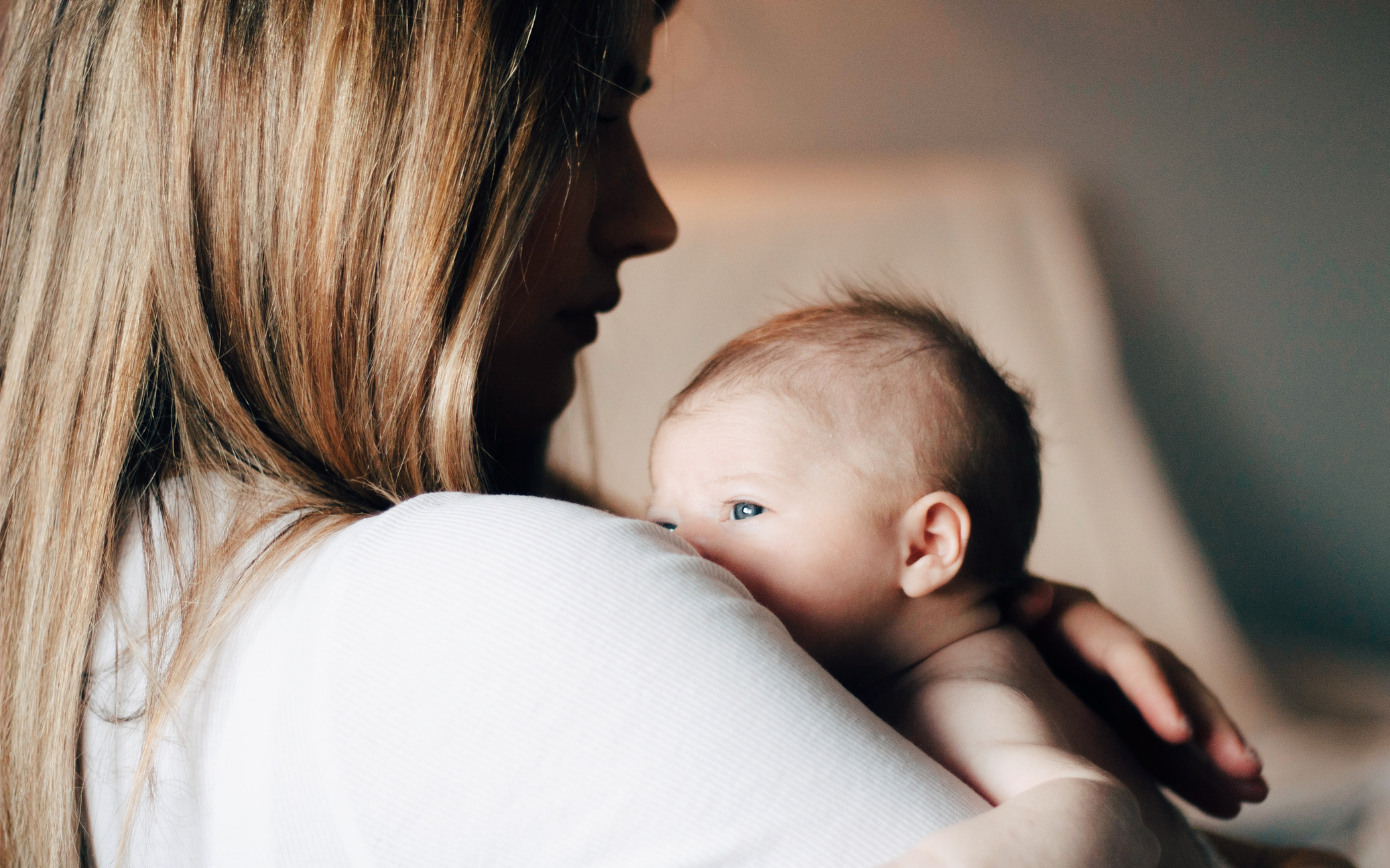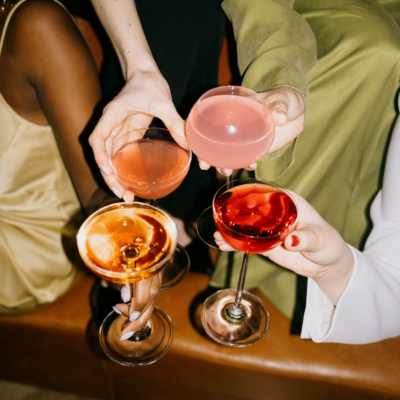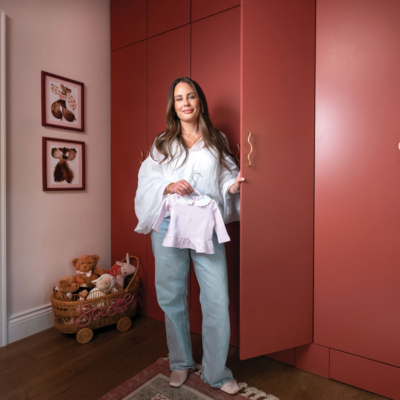When she had her baby boy, author EMMA JANE UNSWORTH wasn’t prepared for the paralysing postnatal depression that followed his birth, and her inability to ask for help …
During pregnancy, women are showered with attention – and not always the good kind. Once the baby is born, however, it’s as though the mother doesn’t exist. When I was arguing for a c-section for the birth of my second baby in 2020, I was shocked to hear the surgeon say there was nothing in my birth notes “to indicate a traumatic birth”. What? Had they swapped my notes or something? Was this gaslighting at an institutional level? Maybe that midwife was as bad at taking notes as she was at delivering babies. Or maybe she thought I was okay throughout it all. Who knows. All I know is: my voice was absent from those notes. I’m sure they got down the baby’s weight somewhere, same as they got down his other measurements every step of the way. But my health and wellbeing were left out of the records.
In her book Constellations, Sinead Gleeson describes caring for a newborn as being “static but non-stop”. It is exactly that. A place of paradoxes. Of night and day. Dark and light. Exhaustion and high alert. You feel simultaneously destroyed and reborn.
The afternoon after the birth, I went for a long walk along the seafront. My husband Ian pushed our son in the buggy and I walked behind. I don’t think I was in pain beyond my stitches and grazes, but now I wonder, What the hell was I thinking? I was determined not to be “beaten” by it. I do remember being scared to tell my parents and sister that I’d had stitches because my sister hadn’t had them in either of her deliveries and I felt as though – I know how stupid this sounds – I’d somehow not done well enough. Despite the fact I had no real control over the elasticity of my vaginal wall. And my sister is the loveliest, most generous person in the world. Where did that feeling come from? Was it the proud little swot in me? Childish sibling rivalry? Or was I just realising that the fronting – the separation of the truth of myself, my experience and feelings from the fiction I felt I had to portray – might have to be presented to my family, too? People who had known me all my life? Because that’s what started happening.
My abdomen was not vacated. It was not empty. Where there was once a baby there was a knot of anxiety the size of a football. I spent most of the first few weeks asking Ian to pass me things, as I sat or lay down, trapped under a baby. Sandwiches, drinks, the remote control, my phone … I was fearful of reaching for anything lest I disturb the sleeping/feeding babe. I thought I couldn’t put a newborn down very often. After a month or so, I became adept at doing everything with one hand, including typing, going to the toilet, and eating a full English breakfast. “Looking after you is looking after him,” a midwife said. I repeated this to myself often, usually as I was justifying my tenth biscuit. Sugar was my new best friend. Sugar and every terrible overseas property programme on daytime TV. And that show about Australian Border Control, where they find snakes and drugs in people’s hats and laptops.
Around this time I have a recurring nightmare where I keep trying to leave the house and every time I get near the door I am detained for another 30 minutes, eternally trapped in a cycle of forgetting things, feeding, winding, and changing nappies. Then I will realise this is not a nightmare; this is real life. The sound of the baby crying makes me panic. It’s the strangest thing. It transcends all reason and logic. It’s almost as though the sound affects me at a cellular level. My whole body vibrates with the baby’s cries and I transform, Hulk-like, into a gibbering, frothing, single-minded wreck, abandoning baskets of shopping in supermarkets and running through town towards home with the buggy, talking in a loud soothing voice so as not to look like a Bad Mother, or someone who has stolen a baby.
My son came out with a huge haematoma, like a little Conehead, likely caused during the fast birth as he knocked and scraped his head against one of my pelvic bones. It injured us both, and I went on to have hip pain for two years. My hips hurt every night – sometimes so much I cried, maxed out on painkillers, unable to get comfortable, told by my GP it was “normal” to have pain for “about a year” after childbirth. I couldn’t lie on my side in bed. I couldn’t take any decent painkillers because I was breastfeeding.
This pain was another contributing factor, I am sure, of the continued slow chipping away at me; the disintegration I was undergoing that was sapping my strength and leaving me increasingly vulnerable. My son’s haematoma took only a little longer than my hip pain to dissipate. It has only just calcified within his growing skull, and is something you’d know was there only if you knew to feel for it. I often kiss it.
People say that with postnatal depression you feel numb, nothing, towards the baby. But I didn’t feel that way. I had an instant urge to protect him, but it wasn’t what I’d call bonding. Trouble was, I felt so far away from my usual “normal”, I didn’t know where my feelings were. How could I know what was wrong with me? Or what this all meant?

I called him “the baby” instead of his name for the first six months or so. When I pushed the buggy down the street, I stood to one side of it, pushing with one hand. Partly to keep my sore back straighter, but I can’t help but read the metaphor between the lines: I literally couldn’t get behind the job of motherhood. I was one foot in, one foot out.
And then there was the sleep deprivation. My son was a bad sleeper from the start. There are not even words to describe the level of tiredness I experienced. “Bone-tired” is the closest I can get, but my bones felt like they’d dissolved – along with my frontal lobe. I was so tired I kept repeating sentences. I was so tired I kept repeating sentences. At night, in bed, I got flashes of bright white behind my eyes – bursts of adrenaline, I learned – the split second the baby started crying.
Every time the baby went to sleep I felt the way I did when I’d finished a novel. A hyper sense of achievement. I was manic with joy and a sudden sense of my own uselessness. Emptied out. Hollow. Evolved to a sort of bitter nirvana. Unsure what to do with myself. The urge to go on a bender was strong. And then that anxiety had nowhere to go. But the real killer was the guilt. Because this was meant to be some kind of golden age of life. I was meant to feel lucky, and grateful, and fulfilled. Complete.
I say I’m fine. It becomes like a well-worn prayer, the “I’m fine” mantra. But I wasn’t feeling complete. I was fragmenting into a million pieces, and I was starting to blow away.
When the baby is a month old, I go to meet two friends for afternoon tea. Leaving the house is, every time, like one of those bad dreams where you’re wading through treacle and late for something important, like a flight. I pack up the buggy with endless gubbins and make it out onto the street. The hotel is only a 20-minute walk from my flat but I’m already late. One thing I am thankful for though: the baby is sleeping. I feel pleased that I have managed to feed him before we set out, so he might sleep now for an hour at least and give me some time to socialise. When I get to the hotel, my friends have been seated in the conservatory, where the gaps between the tables are too narrow for a buggy. I feel the panic start to rise in my throat.
I wasn’t feeling complete. I was fragmenting into a million pieces, and I was starting to blow away.
My friends have been waiting for me to order and are sharing a pot of tea. I manage to squeeze the buggy through the tables to them, apologising constantly, trying not to think that people are dismayed or annoyed to see a baby coming into their midst. I greet my friends, shrug off my jacket and wonder whether to order a glass of prosecco. God, I miss going out.
But whether it’s the change in temperature, or the cessation of motion, or just the sense of me relaxing, the baby wakes as soon as I sit down. I stare at him, willing him not to wail. Don’t wail don’t wail don’t wail, please. He wails.
My friends try to talk to me. They ask me how I am. They are not bothered by the wailing. Maybe no one is bothered by the wailing. I am bothered by the wailing. I can’t concentrate. I try and answer their question. How am I? How am I? Wail wail. It is impossible.
The waiter comes to take our order. It is too late. I am fully engaged in panic mode. My heart pounds. I panic. Here we are, ruining all these people’s afternoon teas! “I’m sorry,” I say, getting up. I manoeuvre the buggy out again, knocking the corners of tables as I pass – sorry, so sorry – just trying to get out of the room, out of earshot. I push the buggy into the accessible toilet. I pull the baby out of the buggy and start to breastfeed. He goes quiet. I exhale. My phone vibrates. It is one of my friends. “Are you okay?” Yes, I reply. Five minutes. Sorry, you go ahead and order.
I feed him and then I realise that I am afraid. I do not want to go back into the restaurant. I feel very far away from all of those people, including my friends. I want to go home. Except the urge is simpler than that; less positive and comforting. I want to hide.
Breastfeeding in a toilet is a fairly grim affair. I am far from mastering breastfeeding confidently in public – and this just compounds my feelings of shame, failure and the need to run away to a secret dark place where I can do my baby business in private. But it is amazing how few places there are to breastfeed in comfort and confidence. If they’re going to pressure us, maybe at least back it up with more facilities? Or make women feel safer getting their tits out? There is propaganda everywhere featuring the word “natural”, and a resulting sense of failure for those who don’t breastfeed, or didn’t have a vaginal delivery, as difficult as these things so often are. But I was too bewildered to have such complex thoughts back then, in that toilet. I was shattered. I was floundering.
I put the baby back in the buggy and sneak back into the lobby and out of the main doors. I send my bewildered friends apologetic text messages from the road as I run, crying. “Are you really okay?’ they text. “Yes, fine!” I insist. My mantra. My living lie.
They didn’t press it. Were they embarrassed in their own way? Did the taboos for women stretch in every direction, making us all afraid to talk, to ask, to cry, to scream?

After The Storm, Postnatal Depression and the Utter Weirdness of New Motherhood, by Emma Jane Unsworth, Profile Books, is out now.
LOVETHEGLOSS.IE?
Sign up to our MAILING LIST now for a roundup of the latest fashion, beauty, interiors and entertaining news from THE GLOSS MAGAZINE’s daily dispatches.











